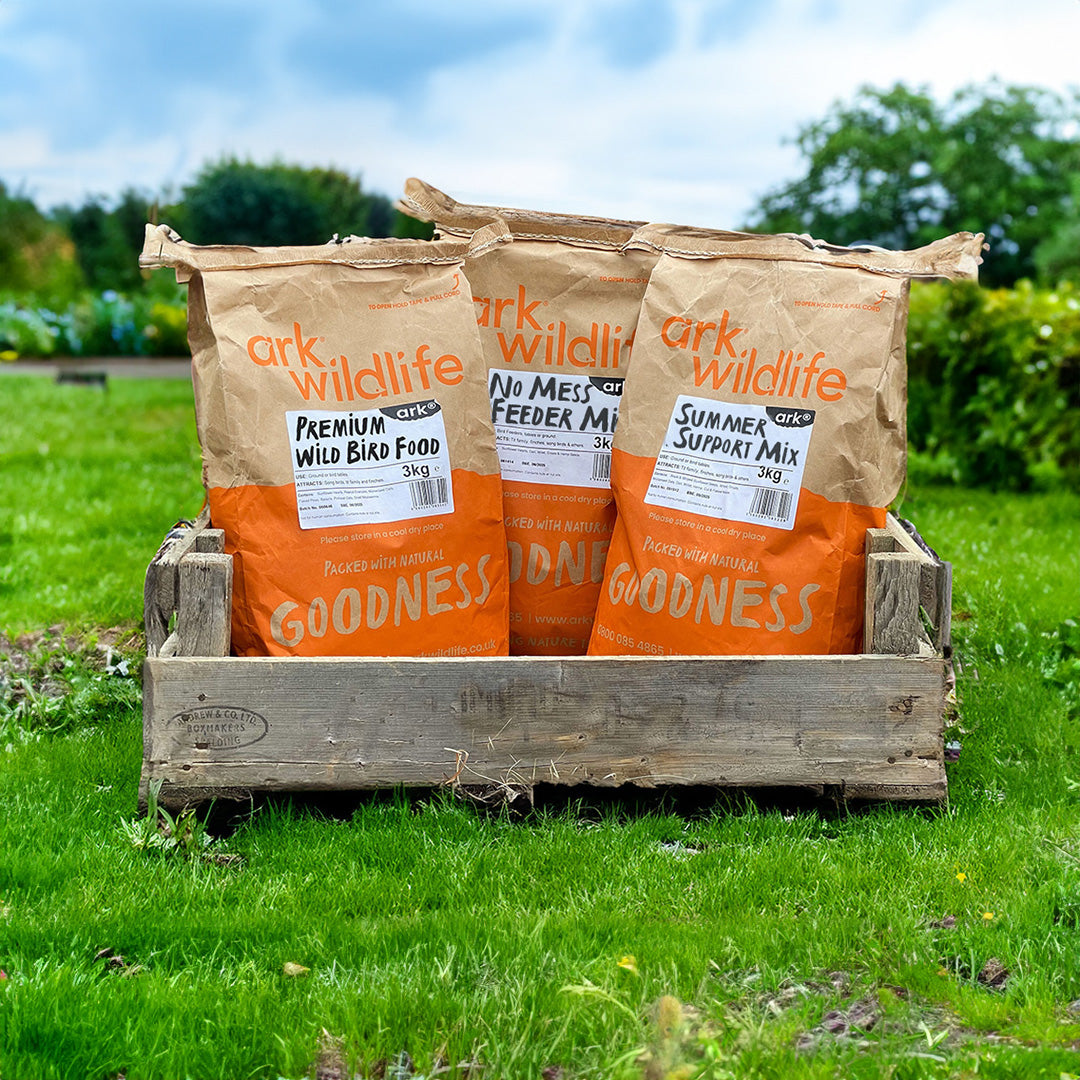If you’re looking to provide supplementary food for squirrels in your garden, it’s important to understand their need for a varied diet. The preventable problem of metabolic bone disease, or MBD, can occur when squirrels have an improper and unbalanced food intake that’s too high in phosphorus and low in calcium. In this guide, we’ll provide you with more detail on what MBD in squirrels is, how calcium deficiency happens, and how we can help by providing the right foods.
What is MBD in squirrels?
Metabolic Bone Disease (MBD) is a well-recognised syndrome that affects all vertebrates, including squirrels and humans. It has multiple causes but is generally diet-based and caused as a result of insufficient calcium absorption.
When the ratio of calcium to phosphorus in their total diet falls below 1:1 there is a risk of the disease developing. It can be physically detrimental for squirrels and, if left untreated, can be deadly. It is recommended that a total diet consists of a ratio of 2:1 calcium to phosphorus and sufficient Vitamin D levels (Vitamin D3 aids calcium absorption).
Signs of MBD in squirrels
Initial signs of the disease can be hard to spot, from excessive sleeping and reduced appetite to aggressiveness and reduced activity.
As time goes on, MBD can be painful and deadly to squirrels. If you’re wondering ‘why do squirrels have seizures?’ The answer can be due to MBD symptoms progressing. MBD in squirrels can mean their bones and muscles are weakened, joint abnormalities, muscle tremors and can even result in the loss of use of their back legs, paralysis or death if not treated.
Calcium deficiency in squirrels
Initial signs of the disease can be hard to spot, from excessive sleeping and reduced appetite to aggressiveness and reduced activity.
As time goes on, MBD can be painful and deadly to squirrels. If you’re wondering ‘why do squirrels have seizures?’ The answer can be due to MBD symptoms progressing. MBD in squirrels can mean their bones and muscles are weakened, joint abnormalities, muscle tremors and can even result in the loss of use of their back legs, paralysis or death if not treated.
Calcium-rich foods for squirrels
Calcium aids in the development and maintenance of strong bones and teeth for squirrels. In the wild, calcium can be found in various foods such as bird eggs and deer antlers. However, this is only for a limited time each year. Squirrels can, therefore, become vulnerable to low calcium levels for the majority of the year.
If you want to help by providing calcium-rich foods for squirrels, try green leafy vegetables such as spinach, broccoli and kale. Or there’s tofu, canned fish, calcium-fortified cereals, calcium-rich fruits, chickpeas, or eggshells. Always opt for low salt and sugar options, and start with small portions. Gradually incorporate these additions alongside a balanced diet, monitoring the squirrel’s reaction when introducing new foods.
What about squirrel calcium supplements?
You may also want to buy a powdered calcium supplement that can be sprinkled on any food, including peanuts to further aid them. This is particularly useful when the young arrive in late spring and early summer and are growing fast. As an alternative, deer antlers offer many additional nutriments and minerals not found in calcium supplements. They also help squirrels maintain good tooth health encouraging their natural need to gnaw.
What foods should you feed squirrels?
Feeding a handful or two of peanuts every day to a family of squirrels will be great for them, especially in late winter and early spring, the time when natural resources are exhausted. If you want to do more, buy a range of true nuts and seeds, and you can add small amounts of fresh fruit (not dried), greens and sprouted seeds to vary your diet and add much-needed calcium.
Alternatively, you can opt for any of our pre-mixed squirrel foods that combine all the key nutrients squirrels need and are additionally fortified with soluble and insoluble calcium, along with a combination of probiotics to maximise squirrel health and boost their immune systems. Squirrels can be fed using squirrel feeders to discourage them from damaging bird feeders, allowing your birds and squirrels to co-exist.
When feeding wild squirrels, always remember the importance of a varied diet. It’s best to only feed enough to supplement their diet, ensuring they continue to forage.
FAQs
Are peanuts safe for squirrels?
There have been concerns raised over the apparent overdependence of squirrels feeding on peanuts. This is partially because they are legumes and not true nuts, and when overfed, can contribute to calcium deficiency.
There have been concerns raised over the apparent overdependence of squirrels feeding on peanuts. This is partially because they are legumes and not true nuts, and when overfed, can contribute to calcium deficiency.
The primary concern is they have a poor calcium-to-phosphorus ratio, which, if it was reflected in the total diet, could lead to MBD. It is important to note that true nuts have similarly poor ratios to peanuts, and it’s, therefore, the overfeeding, not general feeding that raises the concern.
Peanuts can make a positive contribution to a balanced diet, offering a nutritious balance of protein, oil and useful amino acids.
The supplementary feeding of a few peanuts to wild animals will do far more good than harm. The potential for harm only occurs when squirrels (and particularly their young) start to depend on peanuts as a staple over a varied foraged diet. This may occur at times of shortage, overpopulation or even an excess of well-intended people, all feeding peanuts simultaneously to the exclusion of other foodstuffs.
Are pistachios safe for squirrels?
While pistachios are safe for squirrels in moderation of one or two per day, it is advisable to avoid giving them large quantities and never the salted variety. Always give food-grade pistachios in their shells that are unflavoured and unsalted. The high sodium levels in a cup of dry roasted pistachios can be toxic to small animals, so it’s best to avoid it.
Pistachios provide plenty of nutrients, fibre, protein and vitamins that can be beneficial alongside their anti-inflammatory and antioxidant properties. However, offering too many pistachios can lead to a diet that is unbalanced and causes potential health issues.
Are avocados good for squirrels?
Squirrels can eat ripe avocados. In fact, avocados are high in natural facts and as they’re soft and easy to eat they can be a good choice. However, avocados should only be used to feed squirrels occasionally, as their diet should be full of a variety of foods such as nuts, vegetables, fruits and cereals.
It’s extremely important to avoid feeding the avocado skins and the pit to squirrels. These are toxic to small animals and can cause heart issues.
Help ensure squirrels are kept in good health and provided with the right supplementary food to meet their needs. View our range of squirrel food suitable for grey and red squirrels as part of a varied diet, and enjoy watching them thrive in your garden.









